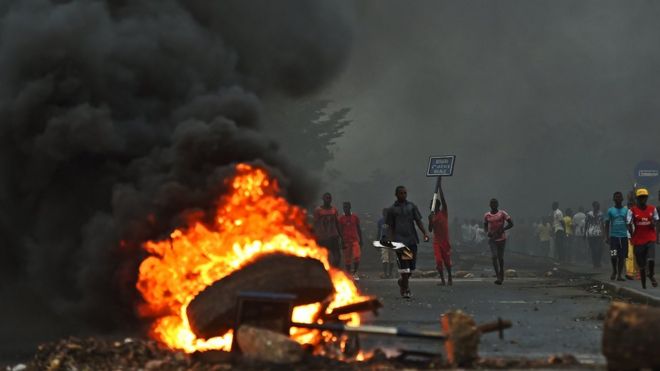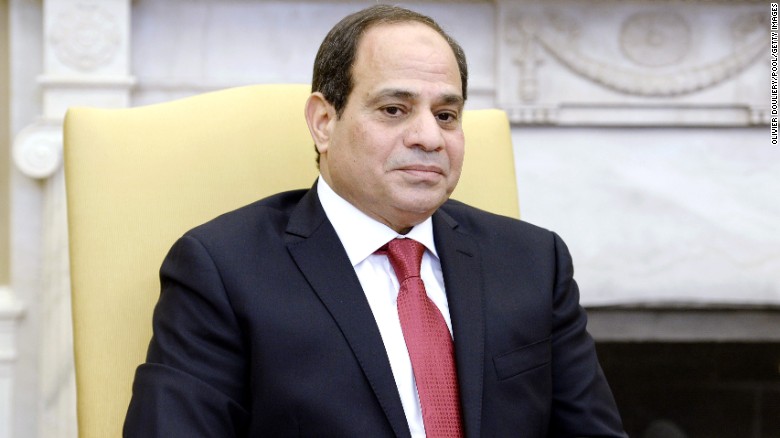By: Adam King
Impunity Rights News Reporter, Africa

MONROVIA, Liberia – Democracy hasn’t come easy for Liberia: a country ravaged with civil warfare aplenty. October 10, 2017 will mark a historic achievement for Liberia. President Ellen Johnson Sirleaf, in a speech to the United Nations General Assembly, proclaimed the achievement:
“The [legislative and presidential polls] will mark the first time in 73 years that political power will be handed over peacefully, and democratically, from one elected leader to another….Democracy is on the march in Liberia and, I believe, on an irreversible path forward on the African continent.”
Liberia has gone almost a century without a peaceful transition of power from one government to the other. President Sirleaf’s achievement in being the first woman to be elected in a democratic election on the African continent is right on par with the anticipated peaceful transition of power. Former United States President Barack Obama underscores the importance of a peaceful transition of power in his farewell address:
“In 10 days, the world will witness a hallmark of our democracy: the peaceful transfer of power from one freely elected president to the next…it’s up to all of us to make sure our government can help us meet the many challenges we still face…But that potential will be realized only if our democracy works. Only if our politics reflects the decency of the our people. Only if all of us, regardless of our party affiliation or particular interest, help restore the sense of common purpose that we so badly need right now.”
President Sirleaf echoed Mr. Obama’s sentiments in the view that she has for Liberia going forward:
“Liberia’s transformation was powered by a world community that made a shared commitment to deliver peace to a country, and a subregion, beset by civil conflict and cross border destabilization. The UN and its partner nations were of one mind, and from that global unity, a new Liberian democratic state was born. Liberia is a post conflict success story. It is your post conflict success story.”
President Sirleaf assumed the presidency at a time when Liberia was facing stagnant development and civil war. Despite those challenges, Liberia has erected a new foundation through government restructuring and citizen engagement. President Sirleaf commented on some of the initiatives that have helped to revitalize the country:
“Further, previously dysfunctional public institutions now have the capacity to respond to the needs of our citizens through decentralized county service centers with ownership by strong local governments. And from the tragedy of the health crisis, we are strengthening our healthcare systems, prioritizing prevention and delivering capacity at the community level.”
Much remains to be seen as to how Liberia will fair upon the departure of President Sirleaf. The local election commissions in Liberia are taking sizable precautions to safeguard the electoral process. In addition to training for its volunteers, the government will be providing upwards of 6,000 security servicemen to assist with order on election day. The field of candidates for the presidency is quite extensive (upwards of 20), leaving doubt as to what direction Liberia will take once the new president is elected and assumes power. While President Sirleaf has ushered in some notable achievements in here tenure, it has not all been free of scrutiny.
The tenure of President Sirleaf herself has also been questioned by some. Most recently, President Sirleaf proposed a law entitled the “Presidential Transition Act”. According to the Liberian Observer, the act contained provisions related to peaceful transitioning of the government and protection provisions for the president and vice president including vehicles, security and dependent benefits. There were other parts of the law that were more controversial. Some have argued that this bill could be used to shield President Sirleaf from charges of corruption for example. President Sirleaf has since withdrawn the bill as of September 17, 2017.
For more information, please see:
Front Page Africa — 6,000 Security Officers to Guard Polling Stations on During Elections — 20 September 2017
Liberian Observer — Ellen Dispels Notion of Living in Fear after Tenure — 20 September 2017
UN News Centre — “Upcoming elections will signal Liberia’s ‘irreversible course’ towards democracy, President Sirleaf tells UN” — 19 September 2017
United Nations — “Focusing on People: Striving for Peace and Decent Life for All on a Sustainable Planet” — 19 September 2017
Bloomberg — Liberia Elections Body Says 20 Candidates Will Vie for President — 31 July 2017
Los Angeles Times — Read the full transcript of President Obama’s farewell speech — 10 January 2017



